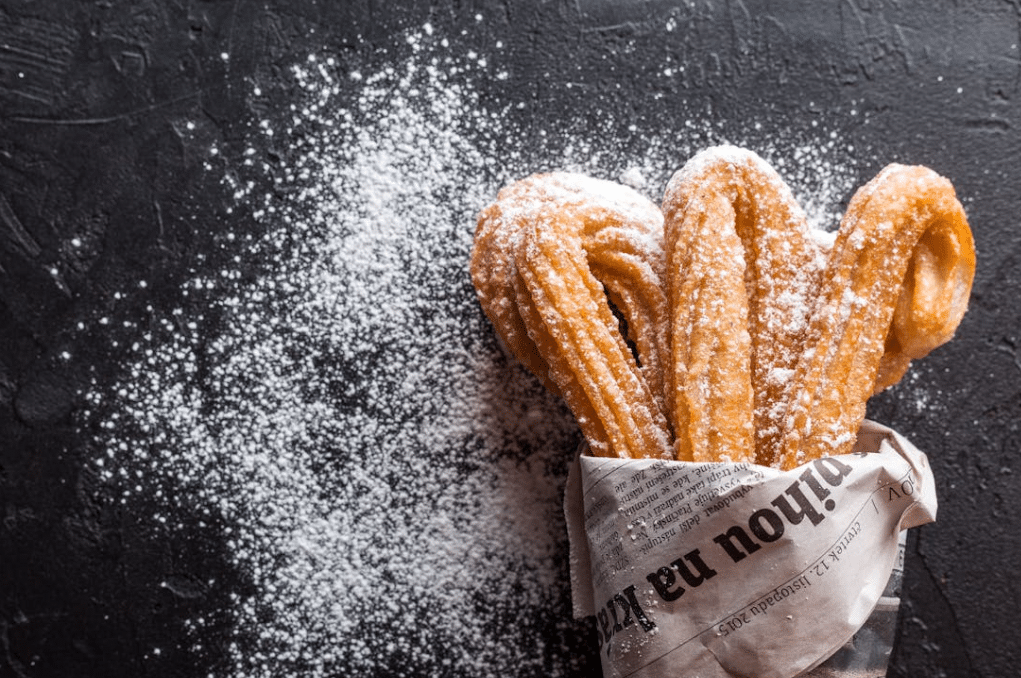
What is sugar addiction and how do you get rid of it?
You know that feeling? That you feel better after eating a delicious bar of chocolate? This is due to the release of some substances after eating sugar. Yet this white goodie is not always so innocent and for some it can lead to a real sugar addiction. But what exactly is it? And how do you get rid of it? We asked family physician Peter van Breusegem. He is currently writing a book about addictions.
Peter, more and more Belgians are suffering from sugar addiction. But what exactly happens in the body when we ingest sugar and why is sugar so harmful to us?
“Sugar is an energy carrier that we absorb from food. A number of cells in our body desperately need that energy. Brain cells, for example, cannot live without sugar. Now, sugar levels in the blood must stay within certain limits to be healthy. If you have too little sugar, you will faint, tremble, etc. Too much sugar is not good either, because then your blood becomes like molasses and has difficulty circulating in the veins.
To keep sugar levels within certain limits, there is insulin. This is a protein hormone produced by the pancreas.
What is happening now in our modern society? Sugar as such does not exist in nature. The Romans and Greeks, for example, did not have sugar. They only had honey. Sugar originated later in India and was brought to us by Arab traders. Consequently, our body is not naturally equipped to process sugar. So if we take in a lot of sugar at once, the excess has to be eliminated by the liver, which converts the sugar into fat, leading to weight gain and other diseases of affluence.”
What exactly is sugar addiction?
“If we take in a lot of sugar at once, which is almost inevitable in our modern society, the pancreas has to work overtime, so to speak. At that point, the cells of the pancreas go into emergency mode and try to make insulin at all costs. That leads to a second wave of insulin secretion after you eat sugar. This occurs about two hours after the first wave, but it is then exaggerated, leading to an excess of insulin and too drastic a drop in sugar levels. In that case, we speak of a paradoxical hypoglycemia. A shortage of sugar in the blood. And you feel that. You start trembling, blurred vision, sweating, etc. That is a typical hypoglycemia attack. Many people then notice that when they take sugar again, they feel better. However, the sugar we ingest at that time goes directly into the cells and is stored in fat, leading to weight gain. Once you get into that vicious cycle of craving, desire and satiety, we speak of sugar addiction.”
We sometimes hear that sugar addiction is worse than cocaine addiction. Can we compare sugar addiction to other addictions?
“Yes, because there is also conditioning, dependence, cycle and excessive intake of a particular product. So that matches some of the criteria of an addiction. In itself, this is strange, because sugar
Is sugar addiction an eating disorder?
“It is certainly a driving force behind some eating disorders, but it is primarily a disease of civilization, which in itself is also a kind of eating disorder. We eat too much, too well and too refined. Consuming too many refined products leads to a dysregulation of a number of mechanisms in the body, and so metabolic syndrome, which is a disease of civilization, arises. If you go through that addiction cycle constantly, then you get hypertension, high sugar levels, diabetes, obesity, etc. And then you’re in a vicious cycle that over time you can’t control.”
So, sugar addiction is rather a disease of civilization?
“You can think of sugar addiction as the driving force behind many diseases of civilization, but it still has its own dynamics. If people at some point are driven by an instinct or by a psychological need or desire to use something, then you’re in a cycle of addiction.”
For some people, it feels good to reward or comfort themselves with a piece of chocolate, for example. How do you explain that? Are sugar consumption and emotions linked?
“Rewarding or comforting oneself with food is a purely animalistic mechanism. In that context, we can make a connection with eating disorders. On the one hand, we have people who suffer from anorexia, which means they don’t eat. At the other end of the spectrum, we have people with bulimia or binge eating, who regularly raid the refrigerator and feel guilty afterwards and punish themselves, which in itself is also a mechanism of addiction. We do distinguish between sugar addiction, which is a purely physiological mechanism and is independent of feelings or self-esteem, and eating addiction, which is much broader and is psychologically rather than physiologically determined.”
Now is it better to consume “slow sugars” than “fast sugars”?
“Now, what matters is the speed of absorption. Sugar dissolved in water such as cola, fruit juice, etc. enters the digestive system and enters the blood very quickly. Blood sugar levels then rise arrow-fast. These are the so-called ‘fast sugars’ that cause the pancreas to go into panic mode. If, on the other hand, you eat “slow sugars” – for example, an orange instead of orange juice – then the spikes won’t be as high. So the body can adjust to that better.”
Now, the key question is: what do you do about it?
“As a general practitioner, I get a lot of people who are addicted to sugar. Sometimes it can already help to explain the problem to the patient so that he gains insight into the vicious circle he is in. How do you break this circle? Simply by not taking any more sugars. You can also start with smaller steps. For example, replace soft drinks with water or tea. Do you still crave something sweet? Then enjoy in moderation and consciously!”
Written by Karolien Selhorst.
Latest contributions
More burnout and mental suffering, but who is listening?
In a previous article, I already addressed the marked increase in burnout and mental health problems. I have also seen this evolution in my own […]
The will to continue to help
It was hard for me to tell my patients that I would be quitting my practice in Brussels. Perhaps that also explains why I choose to continue in […]
I must tell you something
So where does my motivation to (continue to) help people in emergencies come from? A defining moment in my career was my commitment in the 1980s and […]





No comments have been posted yet!